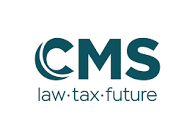The FCA’s new listing rules came into force on July 29, 2024 and aim to simplify and streamline the regulatory framework, reduce the administrative burden on issuers, and enhance investor protection and market integrity. (See also FCA overhauls listing rules to boost growth and innovation on UK stock markets.)
With those aims in mind, the FCA has decided to largely retain the controlling shareholder regime that was applicable to premium listed companies in the new Equity Shares in Commercial Companies (ESCC) category of listed companies. However, there are notable changes to the regime, some reducing the administrative burden on issuers and others resulting in enhanced disclosure requirements, that we will cover in more detail below.
These requirements will also have an impact on listed companies which are now in the transition category and may be looking to comply with the full controlling shareholder regime applicable to the new ESCC category.
General approach
As expected, the new listing rules include the requirement of independence from any controlling shareholder (being any person who exercises or controls, on their own or together with any person with whom they are acting in concert, 30% or more of the votes able to be cast on all or substantially all matters at general meetings of the company). This means that issuers will need to carry on their main activities independently from such controlling shareholders at all times.
However, the way in which the independence of a listed company is maintained under the new regime has shifted from a contractual to a disclosure-based approach. The new listing rules no longer the require ESCC-listed companies to have an independent business and operational control over their main activities, and the requirement for a controlling shareholder agreement, which was still proposed at the consultation stage, is no longer required under the final rules.
In its final policy statement, the FCA acknowledged that the disadvantages of a controlled shareholder structure (such as conflicts of interest) are understood well enough to justify the shift towards a more disclosure-based approach. The FCA’s underlying rationale for this new approach is that, provided that the market and investors are kept sufficiently well informed, the new rules (when combined with existing rules such as the prospectus regime and MAR) provide an adequate framework to achieve transparency around the specific governance arrangements that will affect who, when and how decisions are taken in a listed company.
Key changes for ESCC companies
The key elements of the changed approach for ESCC companies are as follows:
- No requirement for a controlling shareholder agreement (CSA): In a surprise move, the FCA in its final policy statement removed the requirement for ESCC issuers to put in place CSAs, concluding that the costs outweigh the benefits. Citing its objective of attracting a broader range of companies to list in the UK, and acknowledging the challenges that such a requirement can pose, the FCA has left issuers the option to put in place a CSA if they so wish as a good corporate governance tool, but without making this an obligation. The FCA has stressed that it would expect prospectuses to clearly set out the capital structure, key shareholders and any key arrangements in place with a controlling shareholder.
- Amended factors indicating non-independence: To ensure maximum clarity and avoid confusion with the other changes, the FCA has deleted two factors which previously indicated non-independence from a controlling shareholder, which were set out in LR 6.5.3G(2) and (3). These related to a controlling shareholder (or any associate thereof) appearing to be able to influence the operations of the issuer outside its normal governance structures or via material shareholdings in one or more significant subsidiary undertakings; or appearing to be able to exercise improper influence over the issuer.
- Enhanced disclosure for controlling shareholder resolutions: The FCA has introduced the ability for directors to express their views on a resolution proposed by a controlling shareholder or one of its associates if they consider that it is intended (or appears to be intended) to circumvent the new rules. The new UKLR 6.2.10R requires that the circular accompanying the notice of meeting which contains the relevant shareholder resolution must set out a statement by the board of the director’s opinion in respect of the resolution.
Key retained protections
The above changes do not affect the vast majority of rules, previously applicable to premium listed companies, which will now continue to apply to the ESCC category companies, such as the Companies Act 2006 director duties and the “comply or explain” approach of the the UK corporate governance code which will apply to all ESCC companies.
The FCA has maintained the other existing requirements relating to market disclosure, FCA notifications and shareholder voting (subject to the recent changes relating to related party transactions and significant transactions, which we cover in Practical consequences of the changes to the FCA listing rules on significant transactions).
In particular, the following rules will continue to apply:
- Independence from controlling shareholder: As noted above, the requirement for issuers to demonstrate that, despite having a controlling shareholder, they can carry on their main business activity independently from any controlling shareholder both upon listing and on a continuing basis in UKLR 5.3.1R and 6.2.3R. There is guidance in UKLR 5.3.2G and 6.2.4G on factors which may indicate that an issuer does not satisfy these standards.
- Independent shareholder approval for elections: The requirement for the election and re-election of independent directors to be conducted in accordance with UKLR 6.2.8R and UKLR 6.2.9R. These rules require that the election and re-election of any independent director must be approved by both the shareholders and the independent shareholders of the issuer.
- Independent shareholder approval for certain transactions: Specific voting arrangements, including the approval of independent shareholders, for transactions involving the cancellation and transfer of a listing in UKLR 21.2.8R and UKLR 21.5.6R.
- Disclosure of contracts in annual financial reports: Details must be disclosed of any contract of significance between the issuer or one of its subsidiary undertakings and a controlling shareholder as well as details of any contract for the provision of services to the issuer or any of its subsidiary undertakings by a controlling shareholder.
- Notifications for non-compliance: The UKLR 6.2.35R requirement to notify the FCA without delay if the issuer does not comply with certain continuing obligations.
- Statement of non-compliance in annual financial reports: The requirement for a statement to be made by the board and included in the annual financial report that the issuer continues to comply with the requirement in UKLR 6.2.3R or, where the company has ceased to comply with that requirement, a statement that the FCA has been notified of that non-compliance in accordance with UKLR 6.2.35R, together with a brief description of the background to and reasons for that non-compliance. Where an independent director does not support a statement of compliance, the statement must record this fact.
Alasdair Steele is a partner in the Corporate Team and and head of Equity Capital Markets; James Parkes is a partner in the Corporate Transactions group; and Kate Darracott is a partner in the Corporate Department.
















